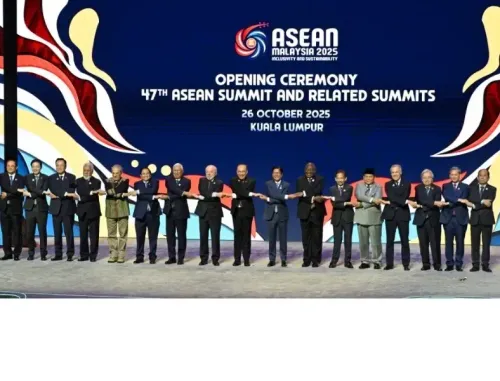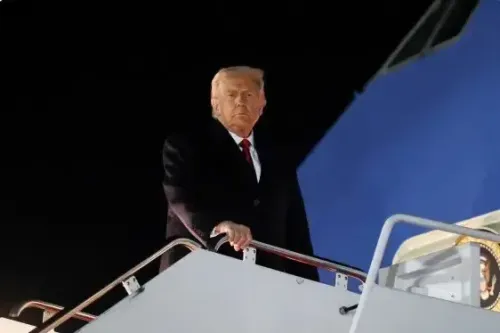Is Trump Really Threatening Canada with a 10% Import Tax over an Anti-Tariff Ad?

Synopsis
Key Takeaways
- Trump's tariffs are a direct response to an anti-tariff ad by Ontario.
- The 10 percent tariff increase is significant for Canadian imports.
- Trade relations between the US and Canada are under considerable strain.
- Many Canadian goods face steep tariffs, impacting the economy.
- The future of trade discussions remains uncertain.
Washington, Oct 26 (NationPress) US President Donald Trump has declared a further 10 percent tariff on imports of goods from Canada due to an 'anti-tariff' advertisement broadcast by the Ontario government, stating that the tariff was imposed because the advertisement was not removed quickly enough.
"Their advertisement was supposed to be taken down IMMEDIATELY, yet they allowed it to air last night during the World Series, fully aware that it was a FRAUD," Trump expressed in a post on his social media platform, 'Truth Social', while en route to Malaysia for the ASEAN Summit aboard Air Force One.
“Due to their serious misrepresentation of facts and this hostile act, I am raising the tariff on Canada by an additional 10 percent on top of their current rates," he continued.
The Ontario government initiated a $75-million anti-tariff advertisement campaign featuring former US President Ronald Reagan, which is being aired in the US and is set to run until the end of January.
Last Thursday, Trump declared the cessation of trade discussions with Canada over the advertisement.
Ontario Premier Doug Ford announced on Friday that the Canadian government would retract the ad in hopes of resuming trade discussions, but the removal would not happen until Monday.
It remains unclear when the 10 percent increase will take effect or if it will apply to all Canadian goods.
Canada's economy has faced significant challenges due to Trump's tariffs, and Canadian Prime Minister Mark Carney has been working with Trump to negotiate reductions.
Over three-quarters of Canadian exports are directed to the US, with nearly $3.6 billion Canadian (approximately $2.7 billion) worth of goods and services crossing the border each day.
Many Canadian products are subjected to a 35 percent tariff, while steel and aluminum are hit with rates as high as 50 percent.
Energy products have a reduced tariff of 10 percent, while other items covered by the US-Canada-Mexico Agreement remain exempt. This trade agreement is due for review. Trump negotiated it during his first term, but his stance on it has since changed.
Both Trump and Carney are set to attend the ASEAN summit in Malaysia.
However, Trump informed reporters accompanying him that he has no plans to meet with Carney during the event.
The US President criticized the advertisement for misrepresenting Reagan's position, a significant figure in the Republican Party and a two-term US President.
Trump has raised concerns that the ad was designed to sway the US Supreme Court ahead of upcoming arguments that could determine whether he possesses the authority to impose such sweeping tariffs, a cornerstone of his economic strategy.









